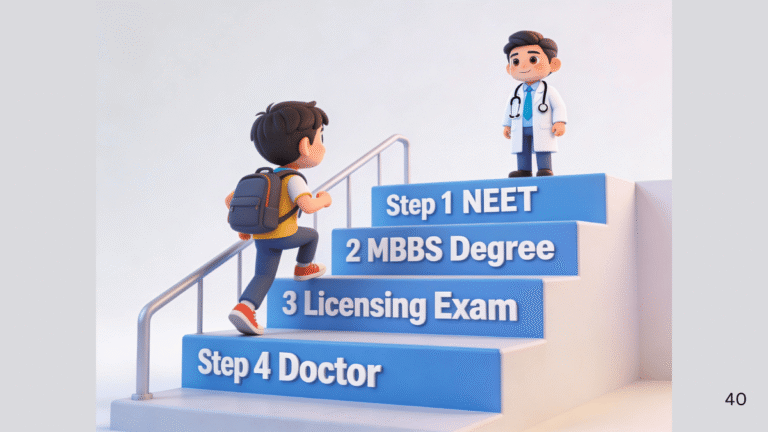Studying MBBS abroad can be a great opportunity to gain international exposure, experience different healthcare systems, and broaden your perspective as a medical professional. If you’re considering studying MBBS abroad, here are some key points to keep in mind:
- Research and choose the right country: Different countries have different medical education systems, curriculum structures, and eligibility requirements. Research various countries and their universities to find the ones that align with your goals, preferences, and financial capabilities.
- Accreditation and recognition: Ensure that the medical universities you consider are recognized and accredited by relevant medical bodies, such as the Medical Council of your home country, or international accreditation bodies like the World Directory of Medical Schools (WDMS) or the Foundation for Advancement of International Medical Education and Research (FAIMER).
- Eligibility criteria: Each university will have its own set of eligibility criteria, including academic requirements, language proficiency tests (such as IELTS or TOEFL), and sometimes entrance exams (like the MCAT). Make sure to check and fulfill all the requirements before applying.
- Cost and scholarships: Studying abroad can be expensive, so consider the cost of tuition, accommodation, living expenses, and other related costs. Additionally, research scholarship opportunities, both from the universities themselves and external sources, help alleviate the financial burden.
- Language requirements: Check if the program you’re interested in is taught in a language you’re comfortable with. Some universities offer programs taught in English, while others may require proficiency in the local language. Language proficiency tests might be necessary, such as the Test of English as a Foreign Language (TOEFL) or the International English Language Testing System (IELTS).
- Cultural adaptation and support: Moving to a foreign country can be challenging, so consider the cultural differences and how you will adapt to a new environment. Look for universities that offer support services to international students, including orientation programs, counseling, and resources to help with the adjustment process.
- Career prospects and licensing: Research the licensing requirements and procedures in your home country or the country where you plan to practice medicine after completing your MBBS. Ensure that the degree you obtain abroad is recognized and accepted by the relevant medical authorities.
- Alumni network and reputation: Look into the reputation and track record of the university, including its alumni network and connections in the medical field. This can potentially provide you with valuable networking opportunities and enhance your future career prospects.
- There are many misconceptions about studying MBBS abroad.One should go through every aspect completely before taking the decision.
Remember to conduct thorough research, reach out to university admissions departments, consult with academic advisors, and connect with students or professionals who have already pursued MBBS abroad. They can provide valuable insights and guidance based on their experiences.





